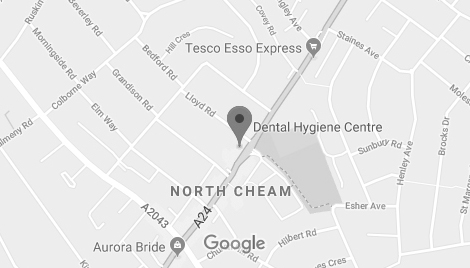Emergencies and Out-of-hours Care
For out-of-hours care, please contact the NHS by dialling 111 or online https://111.nhs.uk/ . Calls to this number should be free from landlines and mobile phones
During surgery hours, please call the practice on 0208 337 4448. Sadly, we are severely limited and are only permitted to provide a remote urgent care telephone triage service.
First aid. Here are some self-help tips which may be helpful for dental pain and some dental injuries.
... a sensitive tooth
If a tooth (or several teeth in an area) has suddenly become very sensitive, avoid hot/cold food and drinks as they may worsen the pain.
You may find relief by regularly applying desensitising toothpaste to affected area with your finger.
... a very painful tooth or toothache
A toothache can feel worse when lying flat; try lying propped up (rather than lying flat) and see if this eases the pain.
If you need to take painkillers, use those which have worked well for you in the past without any adverse effects. Always follow the instructions on the packaging. Please be aware of Government advice on Ibuprofen use and COVID-19 on www.gov.uk/government/news/ibuprofen-use-and-covid19coronavirus Please call us if the pain gets worse.
... lost a filling
A temporary or emergency dental repair kit obtainable from your local pharmacy or online may help.
If the tooth is sensitive, then avoid hot/cold food and drinks and avoid biting on that tooth. Chew on the other side where you can and regularly apply desensitising toothpaste to affected area with your finger.
If the pain gets worse or you are unable to manage the pain, please call us.
... an adult tooth has been knocked out
It may be possible to replant the tooth back into its socket. Please call NHS 111 as soon as you can.
Similarly, if a tooth has moved out of its usual position and is affecting the bite or has fractured and you think the nerve is exposed, you will need to call NHS 111.
Meanwhile, try to handle the tooth by its crown (the white part), avoid touching the root. If the tooth is dirty, wash it briefly (10 seconds) under cold running water.
Try to re-implant the tooth in its socket and then bite gently on a handkerchief to hold it in position If this is not feasible, store the tooth for transportation in milk (not water) – while you wait for instructions from NHS 111. Alternatively transport the tooth in your own mouth, keeping it between molars (back teeth) and the inside of the cheek.
...my child's baby tooth has been knocked out
The tooth should not be replanted.
If your child is in pain, avoid hot/cold food and drinks as they can worsen the pain.
See if the child can lie propped up (rather than lying flat) – it may ease the pain
If the child needs to take painkillers, use those which have worked well for them in the past without any adverse effects. Always follow the instructions on the packaging. Please be aware of Government advice on Ibruprofen use and COVID-19 on www.gov.uk/government/news/ibuprofen-use-and-covid19coronavirus
... a swelling
This is usually caused by an infection, which may be of tooth or gum origin. Please call us and if appropriate, the dentist will prescribe antibiotics..
If your face is swollen, apply a cold compress and do drink plenty of fluids if eating is difficult.
It's important that you contact NHS 111 as soon as possible, or even attend A&E, especially if the swelling is restricting your swallowing or extending to the eye area.
... crown has come off
Please avoid the temptation to "glue" the crown back in. If you wish, you can obtain from your pharmacist a denture adhesive/cement kit as a short-term measure – typically this can be cleaned off by your dentist when our normal service resumes.
Please keep the crown secure as we may be able to place it back for you once we resume normal care. If the underlying tooth is painful or sensitive, do avoid eating near it and drink tepid room temperature drinks only.
If your tooth has been fractured with the crown, please ring NHS 111.
... broken dentures
Remove your denture whenever possible, especially if your mouth is painful as a result.
If you need to take painkillers, use those which have worked well for you in the past without any adverse effects. Always follow the instructions on the packaging. Please be aware of Government advice on Ibuprofen use and COVID-19 on www.gov.uk/government/news/ibuprofen-use-and-covid19coronavirus
Broken dentures can usually be repaired. Please contact us when our normal service resumes.
... broken orthodontic appliances
The British Orthodontic Society website (www.bos.org.uk) has advice on managing orthodontic problems. If you have inhaled or swallowed large parts of a fractured appliance or your airway is restricted, please ring NHS 111 as soon as possible
... an ulcer
If the ulceration has been present for 3 weeks or more, please call NHS 111. If you are severely dehydrated, please also ring NHS 111 as soon as possible.
If the ulceration has been present for less than 3 weeks :
You can try a mouthwash with chlorhexidine (but not for children under 7 years).
A topical analgesic (such as benzydamine oromucosal spray) can help as well your normal painkillers which have worked well for you in the past without any adverse effects. Always follow the instructions on the packaging. Please be aware of Government advice on Ibuprofen use and COVID-19 on www.gov.uk/government/news/ibuprofen-use-and-covid19coronavirus
Other measures which can help are :
- Try a soft diet.
- If the ulceration is due to dentures, keep your dentures out where ever possible.
- If the ulcer is due to trauma from a nearby tooth, you could use an emergency temporary repair kit which can be purchased online or at a pharmacy.
- If you are receiving drug treatment or have an underlying medical condition that might be the cause of the ulcer(s), please contact your GP.




